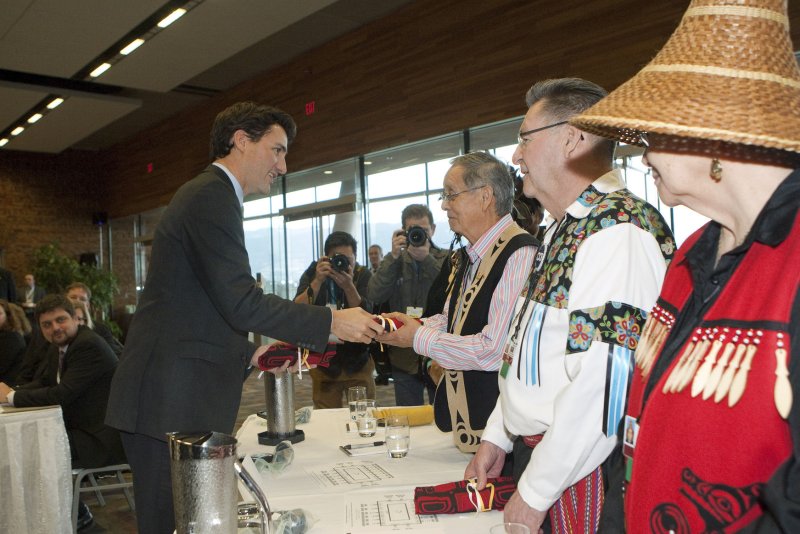1 of 4 | Canadian Prime Minister Justin Trudeau vows to work collaboratively with members of the aboriginal community on issues related to climate change. He met with them Wednesday in Vancouver. File Photo by Heinz Ruckemann/UPI |
License Photo
VANCOUVER, British Columbia, March 3 (UPI) -- Canadian Prime Minister Justin Trudeau said the nation was standing together with members of the aboriginal community on issues related to climate change.
Members of the First Nations of Canada met alongside provincial leaders and the prime minister to address clean energy potential and climate change. In a statement, the prime minister said climate change was one of the greatest collective challenges facing the nation.
"[The] meeting affirmed that our leaders, from coast to coast to coast, we will stand together in their passion and commitment to tackling climate change and growing the economy," he said.
At the meeting in Vancouver, aboriginal leaders said they wanted full inclusion into federal, provincial and territorial governments in Canada, and stronger commitments to curbing greenhouse gas emissions.
Canada's conventional energy plans have frustrated First Nations that are concerned the development of oil, gas and associated infrastructure may harm the ecosystems upon which they depend.
In January, the National Energy Board gave its consent to LNG Canada Development Inc. for an export license with a maximum capacity of 52.7 trillion cubic feet of natural gas from a facility to be located at the port city of Kitimat in British Columbia.
LNG Canada said it was the first company to receive such a license, adding it was among the first to work in collaboration with aboriginal communities concerned about the perceived environmental issues surrounding coastal energy development.
Perry Bellegarde, the chief of the Assembly of First Nations, said native communities are typically the first to feel the impacts of climate change.
"We know how to protect the lands and waters," he said in a statement. "To do so, we must be directly involved in the design, development and delivery of Canada's climate change strategy."















